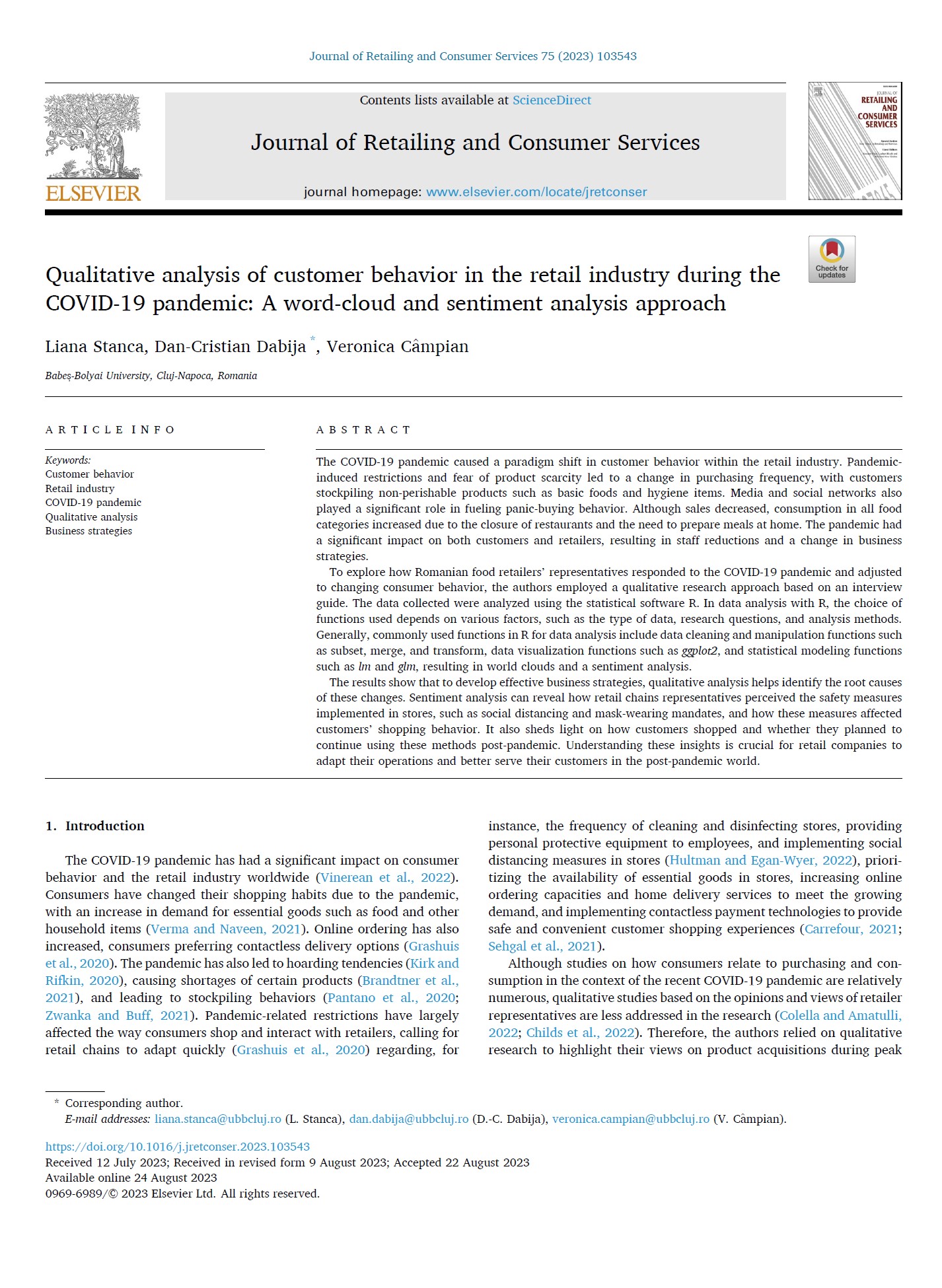|
|
|
Stanca, L., Dabija, D.C. & Câmpian, V. (2023) Journal of Retailing and Consumer Services [Core Economics, Q1]
Autor:
Cristina Alexandrina Stefanescu
Publicat:
13 Octombrie 2023
Stanca, L., Dabija, D.C. & Câmpian, V. (2023) Qualitative analysis of customer behavior in the retail industry during the COVID-19 pandemic: A word-cloud and sentiment analysis approach. Journal of Retailing and Consumer Services, 75, 103543.
DOI: https://doi.org/10.1016/j.jretconser.2023.103543
✓ Publisher: Elsevier
✓ Categories: Business
✓ Article Influence Score (AIS): 1.669 (2023) / Q1
Abstract: The COVID-19 pandemic caused a paradigm shift in customer behavior within the retail industry. Pandemic-induced restrictions and fear of product scarcity led to a change in purchasing frequency, with customers stockpiling non-perishable products such as basic foods and hygiene items. Media and social networks also played a significant role in fueling panic-buying behavior. Although sales decreased, consumption in all food categories increased due to the closure of restaurants and the need to prepare meals at home. The pandemic had a significant impact on both customers and retailers, resulting in staff reductions and a change in business strategies. To explore how Romanian food retailers’ representatives responded to the COVID-19 pandemic and adjusted to changing consumer behavior, the authors employed a qualitative research approach based on an interview guide. The data collected were analyzed using the statistical software R. In data analysis with R, the choice of functions used depends on various factors, such as the type of data, research questions, and analysis methods. Generally, commonly used functions in R for data analysis include data cleaning and manipulation functions such as subset, merge, and transform, data visualization functions such as ggplot2, and statistical modeling functions such as lm and glm, resulting in world clouds and a sentiment analysis. The results show that to develop effective business strategies, qualitative analysis helps identify the root causes of these changes. Sentiment analysis can reveal how retail chains representatives perceived the safety measures implemented in stores, such as social distancing and mask-wearing mandates, and how these measures affected customers’ shopping behavior. It also sheds light on how customers shopped and whether they planned to continue using these methods post-pandemic. Understanding these insights is crucial for retail companies to adapt their operations and better serve their customers in the post-pandemic world.

inapoi la stiri  vezi evenimentele
vezi evenimentele  home
home 
|